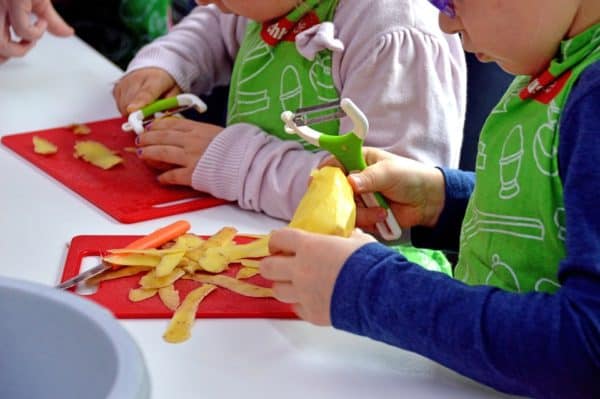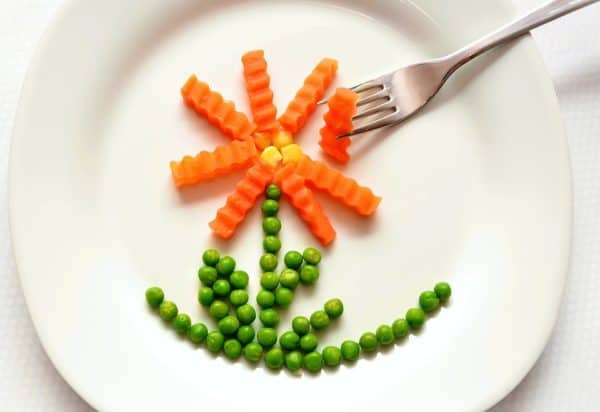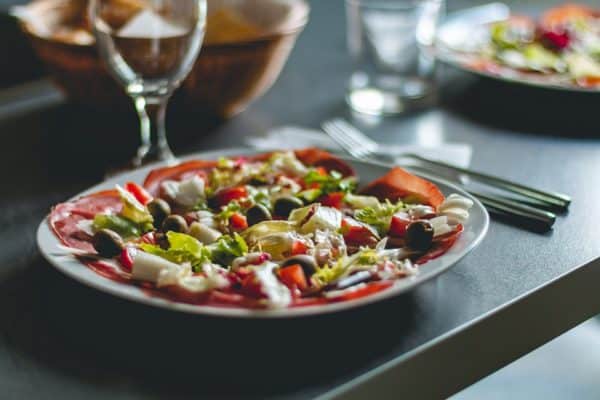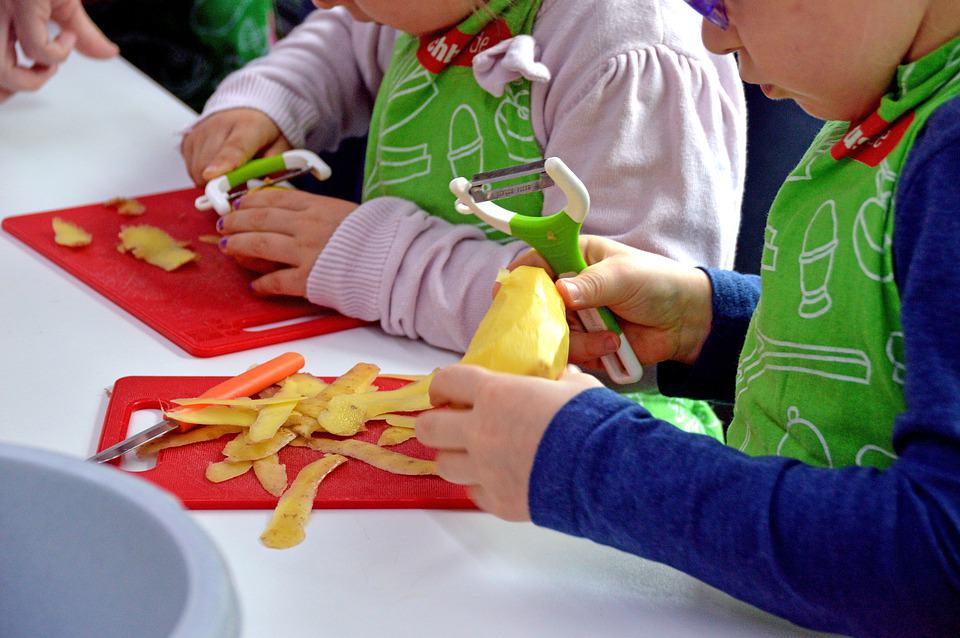Conversations about nutrition should start as soon as your child starts eating food. Discussions about healthy food, fruits and vegetables can begin as early as you want. There is no reason to wait for your child to reach a specific age to strike up a conversation about anything. There is a way to discuss any topic in a way that is appropriate for a child of any age and talking to your child as much as possible is vital for their development. Here’s how to discuss healthy fruit and vegetables with children of all ages.

6-18 months
When your baby starts weaning, the fun begins! There are all sorts of recipes, meals and snacks to prepare for your baby when they are ready to start eating foods. It’s an important time that needs to be looked into thoroughly before you begin the journey. In addition to not overloading your baby’s system with different food groups all in one go, you also need to consider that your baby might be allergic to something. As such, do your research when you reach this crucial stage in your baby’s development.
However, this doesn’t mean that you can’t have fun! You can also use the weaning stage to expand your baby’s vocabulary and to start discussing the importance of a healthy, well-balanced diet. Describe the colours, textures and flavours of the foods and what sort of food it is to them during mealtimes, as well as why it is good to eat it.
Try phrases like “it will make you grow big and strong”, “fruit is good for you”, “bananas are soft and sweet”. Or “sweet potatoes are orange,” “eggs are white and yellow”, “eggs help you build strong muscles and bones”, “carrots are good for your eyes”, “fish is good for your brain”. It’s a simple but effective way to begin the conversation about healthy food and a great way to build your baby’s vocabulary.

18 months – 36 months
By 18 months, your baby’s vocabulary and ability to communicate with you using words is increasing every day. Making talking about and eating a balanced, healthy diet normal from the very beginning of your child’s life sets them (and you) on a great path. With childhood obesity tripling over the past 40 years, it is vital to foster healthy eating habits.
From 18 months to 36 months you should be able to start having conversations with your child, even if they do not fully respond to your statements. Use everything in your arsenal to discuss getting a healthy diet like children’s books and videos, but most importantly remember that children learn from your example. If you set a good example by having a healthy, varied diet full of all the fruits, vegetables and fibre that you need then they should naturally follow your example… in theory, anyway.
3 years – 5 years
At this age there are lots of tactics to employ to help you teach your children about nutrition. You should try not to describe certain foods as ‘good foods’ and others as ‘bad foods’. In addition to setting your child a good example by eating well yourself, you can also incorporate exercise and activity fun into your day-to-day routine at this age.
Everyone should be doing some type of physical activity every day. Make it fun and get everyone involved. Even if the weather is awful, there are plenty of energetic activities you can do at home to burn some calories. You don’t need to go outside to keep fit and keeping fit can be fun.
At this age, bedtimes probably still revolve around a story. A great one to use as a vehicle to discuss healthy food and drink is Tommy’s new book Captain Fantastic And The Chocolate Planet. Take your little ones to a world made of chocolate and sweets with Captain Fantastic and his hungry hound Winston. They soon discover what happens if you eat too many sweets.
Classic children’s book The Very Hungry Caterpillar by Eric Carle can be used in a similar way, particularly at the point when the caterpillar has eaten his feast on Saturday. The next day he has a tummy ache, but he enjoys a nice, green leaf and feels much better. It’s the perfect narrative for your little one.
5 – 9 years
This is the age to really engage your children in the importance of eating well and staying active. Joe Wicks has had an incredible year in 2020. He has got the nation’s children up and moving throughout the lockdown and has proven to everyone joining him in his workouts that “Exercise boosts your energy and makes you feel good”, he tweeted from his @thebodycoach Twitter page.
Joe Wicks’ child-centred workouts are a great way to get your kids to exercise and his cookery books have lots of recipes that would appeal to children. They will also help you as you engage your children in conversations about the importance of nutrition.
9 – 14 years
Children and teenagers at this age can start to become challenging in their insistence (and need) to do things their own way. However, it is still vital that you try to engage them in conversations about living healthily. Eating meals together as a family as much as possible not only helps families to bond, develops social skills and improves the vocabulary of children, it also helps your children to enjoy a “wider range of healthy foods”.

14 years +
Everyone knows that teenagers rebel and once those teenage years commence, you will experience your child wanting to assert their independence. It is a difficult time because you need to give them the freedom to express themselves and become fully fledged personalities as well as guiding them. This might see you at loggerheads now and then, but it is key that your teenager is eating well.
A teenager’s body is going through many physical changes which needs to be supported by a healthy, balanced diet. With all of the pressures on teenagers in the twenty-first century from social media and the competition to stay up with their peers, this might be reflected in their diet. However, being able to have open, honest conversations with your child will hopefully mean they feel able to come to you to discuss any concerns that they might have.
We have said it a few times but the key to instilling great eating practices and making a well-balanced diet normal for your child is to begin now. And remember to lead by example.
Get in touch to find out more about how to teach nutrition to children. We can organise a wide range of themed parties for children online.

